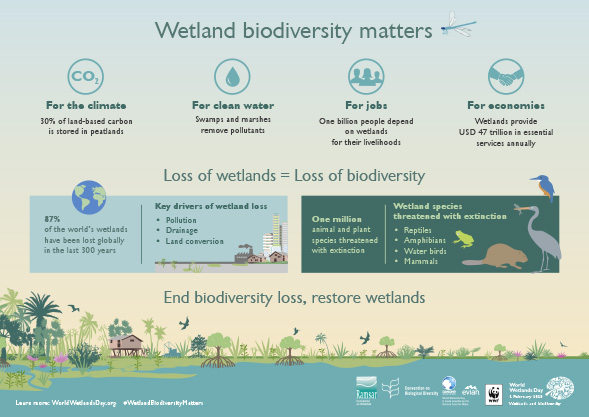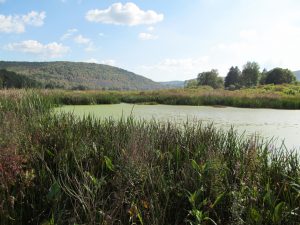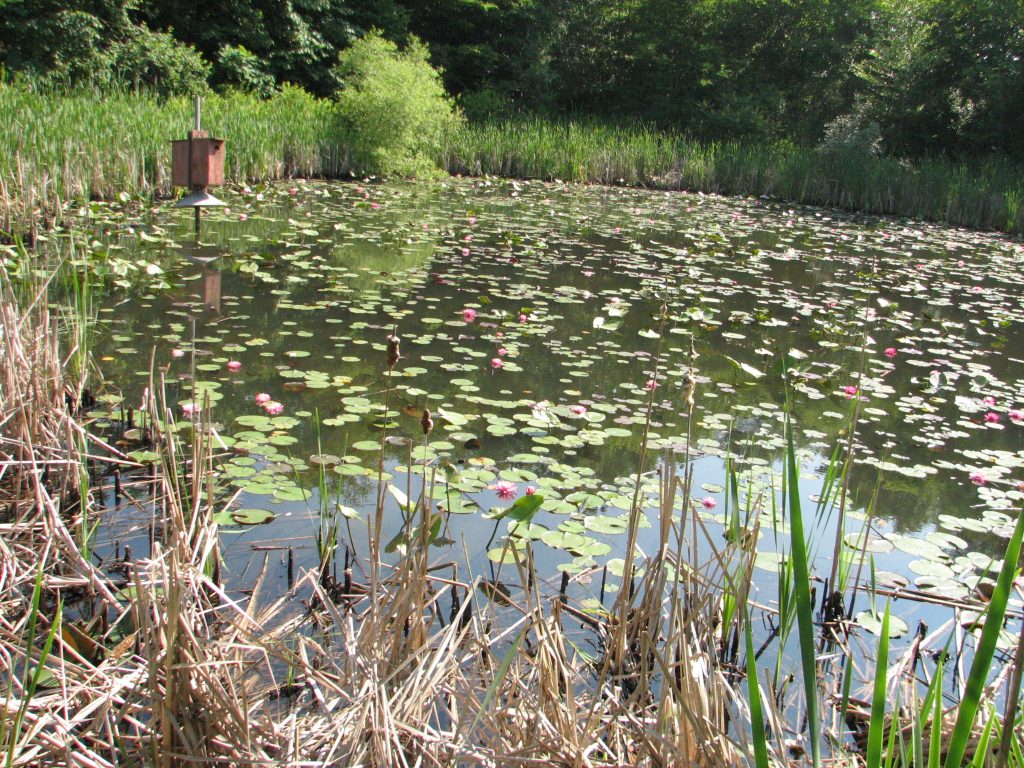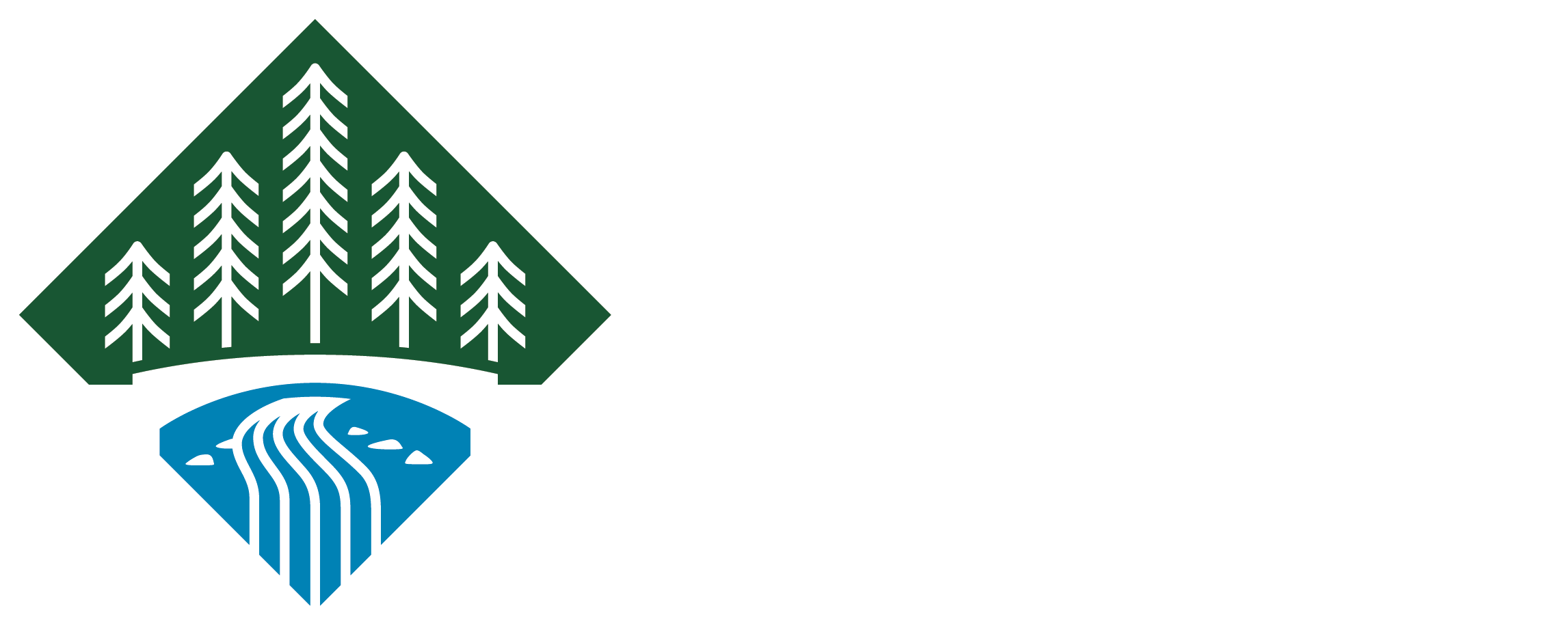Wetlands are land areas that are saturated or flooded with water either permanently or seasonally. They are rich with biodiversity and provide critical habitat for many species of migratory and resident birds, reptiles and amphibians, fish, insects, and plants. In fact, 40% of all species live or breed in wetlands! Wetlands also provide a variety of important ecosystem services, such as storing floodwaters, cleaning and recharging groundwater, sequestering carbon, trapping sediment, and filtering pollutants for clean water. In addition, Wetlands offer economic opportunities for recreation activities like boating, fishing, hunting, bird-watching, and canoeing. The variety of life, or the biodiversity, that can be found in wetlands plays a major role balancing the health and wellness of the entire planet.

Inland wetlands, such as the ones found in Pennsylvania, include marshes, ponds, lakes, fens, rivers, floodplains, and swamps. For the past 30 years, NPC has played an active role in helping to conserve these delicate ecosystems across the region. Here’s a look at some of those conserved land:

Pennsyl & Homer Webster
These two sisters properties located just north of Wellsboro cover a large area of wetland, locally known at the “The Muck.” The area was once used to raise lettuce and celery, but today hosts as a breeding ground for a variety of birds, including Marsh Wrens, American Bitterns, Common Snipe, Virginia Rail and Sora Rail. It’s been designated as one of Pennsylvania’s Important Bird Areas and offers a boardwalk and wildlife viewing blind for the public to enjoy.
Cavanaugh Access
Many people know the Cavanaugh Access Area because it provides quick access to the Pine Creek Trail. However, this 132-acre parcel of land also helps conserve important wetlands along Marsh Creek. The wetlands are extensive, fed by Canada Run, and close to wooded areas. This allows wildlife to use the wetlands and Creek by moving from the forest to the stream and wetlands and back. Marsh Creek is a major tributary to Pine Creek. Marsh Creek meanders and bends through this property for nearly one mile. This Creek and its associated wetlands are a huge sponge that provide water year round that helps keep Pine Creek’s water cooler in the summer.
Clinton County Solid Waste Authority (CCSWA)
Wetland mitigation is the restoration, creation or enhancement of wetlands for the purpose of compensating for unavoidable impacts to wetlands at another location. During the 1990’s, the CCSWA worked closely with the Army Corps of Engineers to construct a mitigation wetland to replace an area that was impacted during their expansion. Today, NPC holds a 49-acre easement on the land, protecting the wetlands’ water, soil, fish and wildlife conservation values.

PPL Wetlands
This property was the first conservation easement of any type in Montour County back in 2008. The entire conserved property consists of nearly 109 acres and includes a 5-acre mitigation wetland constructed by PPL, 59 acres of wooded wetland, cropland, and creek frontage. Today, dragonflies can be found patrolling above the water and broods of ducks raise their young here.
Fossil Farm
The 150-acre easement holds a variety of unique environmental values, including a beaver pond and several other large wetland areas. Catlin Hollow Creek flows through the property before entering Crooked Creek before winding its way to the Chesapeake Bay. This property helps to conserve the water quality of not only this region, but plays a vital role on a much larger scale as well!
Learn more about NPC’s other conserved properties with wetlands here: John F Logue, Logue/McMahon, Maurey, Viani.
Wildlife habitat. Clean Water. Climate Control. Economic Benefits. Recreational Opportunities. Basically, wetlands are like ecological and societal powerhouses.
Thank you to NPC’s members, partners, and supporters that helped conserve these special places for the benefit of our communities today and generations to come!

